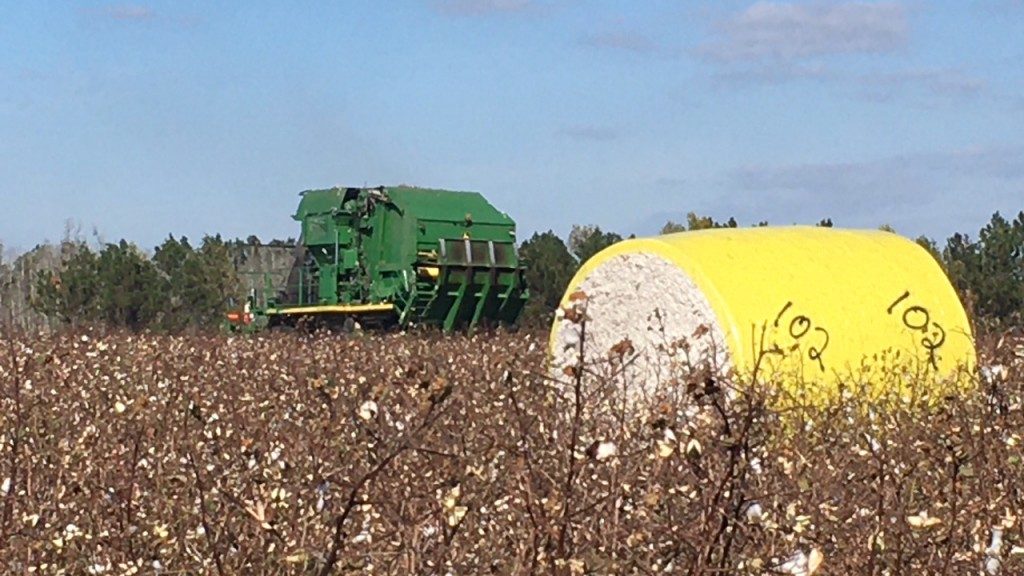Recent Posts
-
I have received this question a few times this week. Dr. Culpepper, UGA Cotton Weed Specialist, preaches that preemergence herbicides are the most effective tool to prevent resistance to post herbicides. Research conducted across GA during 2018/2019 showed that an effective preemergence herbicide mix reduced the number of pigweed needing to be controlled by the…
-
I have received a question or two about Tan Spot (formerly Helminthosporium) in local wheat. Tan spot has been noticed in a few area wheat fields and these fields range from boot to early heading stage of development (Week of April 4, 2020). The pictures below are examples of Tan Spot that I have been…
Posted in: Small Grains -
How do I control thistles in my pasture? I have received a question or two about thistle control in pastures. Thistles are biennials, which grow from seed in year one and produce seed in the second year. During the first year, the plant will grow as a rosette and the second year the plant bolts…
Posted in: Hay & Forages -
The area corn crop this week ranges from being planted to the V3-V4 stage of development. Growers need to evaluate their corn stands. A good uniform corn stand at the correct population is essential for high corn yields. Table 4, which is in UGA Corn Production Guide, shows the length of row required at various…
Posted in: Corn -
As we go through bud break in Colquitt County, lets discuss a few topics such as budmoth, Ambrosia beetle and Phylloxera. Pecan Budmoth – Accroding to Andrew Sawyer, UGA Area Pecan Agent, budmoth adults overwinter under bark scales then start laying eggs in the spring. Eggs hatch in about 6 days and the larvae then…
Posted in: Pecans -
Below are words from Dr Bob Kemerait on the current peanut seed quality and seed quality situation We have received many questions in recent days pertaining to the quality issues facing our peanut seed supply in 2020 and relative performance of seed treatments Dynasty PD and Rancona. Below is the information that you need to know…
Posted in: Peanuts -
Morningglory control in corn has been topic of discussion this week. In Georgia, morningglories are particularly difficult to manage because residual herbicides do not provide full-season control and corn maturation in late June/July allows ample sunlight to reach the soil surface which stimulates late-season emergence/growth. In heavy infestations, complete control of morningglory is almost impossible…
-
According to Dr. Eric Prostko, UGA Corn Weed Specialist, weeds that emerge just prior to or at corn emergence can cause greater yield losses than later emerging weeds. Growers who implement weed control programs from 20 to 45 days after planting (DAP) usually prevents yield losses due to weed competition. Weeds that emerge 45 DAP…
-
What about controlling the wild radish in cotton burndown? The most effective and economical option for controlling radish and also cutleaf evening primerose is an application of 2,4-D alone of mixed with any Roundup mixture (such as Roundup + Valor) at least 30 days before planting. What if you do not want to put 2,4-D…
-

By Sharon Dowdy for CAES News For the past three decades, Alabama, Florida and Georgia have been battling over control of water resources in what has become known as the “tri-state water wars.” Judge Paul Kelly of New Mexico, a Supreme Court-appointed expert known as a “special master,” recently ruled in favor of Georgia in the ongoing Florida…
Posted in: Uncategorized
